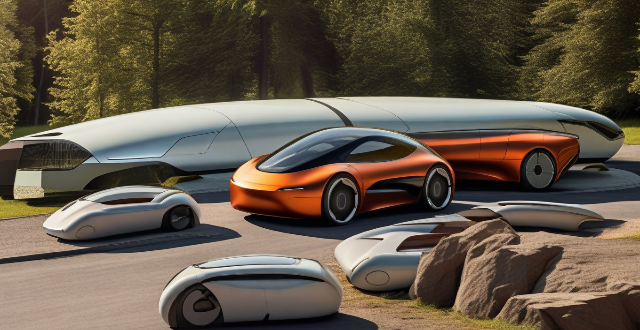This article explores the future of autonomous driving in electric cars, highlighting its potential benefits such as increased safety, improved efficiency, and reduced emissions. It also discusses the challenges and considerations that need to be addressed, including regulation, infrastructure, public acceptance, and cybersecurity.

The Future of Autonomous Driving in Electric Cars
Autonomous driving technology has been rapidly evolving and is expected to play a significant role in the future of electric cars. This technology offers numerous benefits, including increased safety, improved efficiency, and reduced emissions. In this article, we will explore the future of autonomous driving in electric cars.
Increased Safety
One of the most significant advantages of autonomous driving technology is its potential to improve road safety. Self-driving electric cars are equipped with advanced sensors and software that can detect and respond to various hazards on the road. This technology can help reduce the number of accidents caused by human error, such as distracted driving, speeding, or drunk driving.
Key Points:
- Advanced sensors and software for detecting hazards
- Reduction in accidents caused by human error
- Improved overall road safety
Improved Efficiency
Autonomous driving technology can also lead to improved efficiency in electric cars. By using real-time data analysis and optimization algorithms, self-driving electric cars can optimize their routes, speed, and acceleration to minimize energy consumption. This can result in longer battery life, reduced charging times, and lower operating costs for electric car owners.
Key Points:
- Real-time data analysis and optimization algorithms
- Optimized routes, speed, and acceleration
- Longer battery life and reduced charging times
Reduced Emissions
Another benefit of autonomous driving technology in electric cars is its potential to reduce emissions. By optimizing routes and reducing congestion, self-driving electric cars can help decrease the amount of time spent idling in traffic. This can lead to a reduction in greenhouse gas emissions and air pollution, contributing to a cleaner and healthier environment.
Key Points:
- Optimized routes and reduced congestion
- Decreased idling time in traffic
- Reduction in greenhouse gas emissions and air pollution
Challenges and Considerations
While the future of autonomous driving in electric cars looks promising, there are still several challenges and considerations that need to be addressed. These include issues related to regulation, infrastructure, public acceptance, and cybersecurity.
Challenges:
- Development of regulations and standards for autonomous driving technology
- Investment in infrastructure to support self-driving electric cars
- Addressing public concerns about safety and job displacement
- Ensuring cybersecurity and protecting against hacking attempts
Conclusion
The future of autonomous driving in electric cars is full of potential benefits, including increased safety, improved efficiency, and reduced emissions. However, there are still several challenges that need to be addressed before this technology can become mainstream. As these challenges are overcome, we can expect to see a significant shift towards self-driving electric cars on our roads in the coming years.